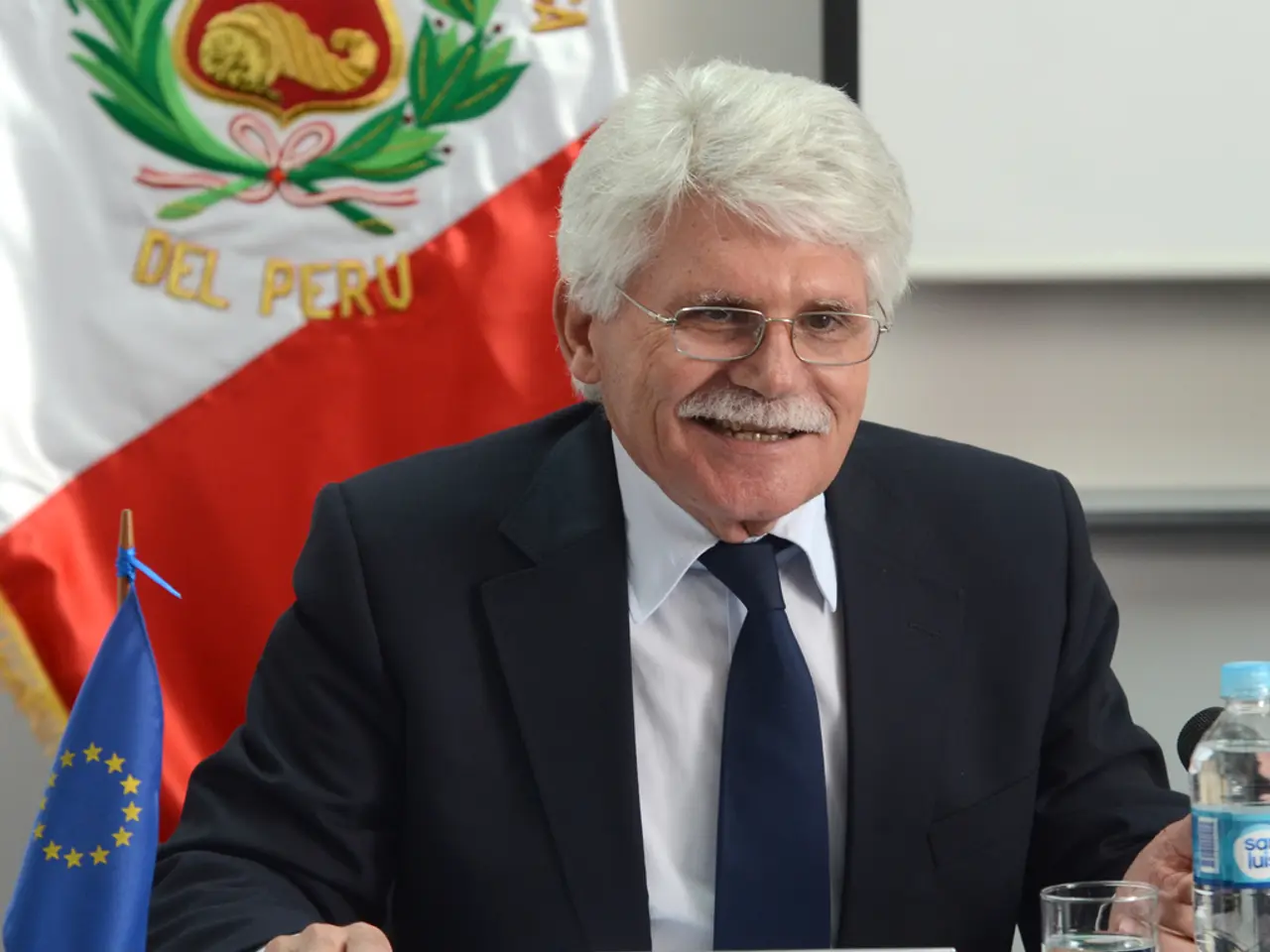Electoral contest taking place in Bolivia between two political adversaries from opposition parties
Bolivia is gearing up for a crucial runoff election on October 19, 2025, with two candidates vying for the presidency. The contenders are Rodrigo Paz Pereira, a centrist senator, and Jorge “Tuto” Quiroga, a former president known for his conservative economic policies.
Rodrigo Paz received 32% of the initial vote, while Quiroga obtained 27% in the first round held on August 17, 2025. Paz, a son of a former president, is running on a platform that promises change and addresses corruption, a key concern amid Bolivia’s economic crisis. His running mate, Edman Lara, has connected with poorer and middle-class voters, emphasizing anti-corruption efforts and a focus on improving governance and economic management.
On the other hand, Quiroga, labeled as right-wing, is a former president known for his conservative economic policies. Although the detailed policy specifics are not fully outlined, his positioning suggests an economically conservative platform likely favoring market-oriented reforms in contrast to the long-dominant leftist MAS party.
The Bolivian electorate seeks "not a revolution, but stability" in the current election, according to KAS expert Stolte. This sentiment is driven by the country's economic woes, characterised by fuel and foreign exchange shortages, high inflation, and lack of medication.
It's important to note that Bolivia is one of the poorest countries in South America, with rural and indigenous regions being particularly affected. Approximately 48% of Bolivians are of indigenous origin, according to estimates from 2017. However, ethnic affiliation plays a minimal political role in the current election, unlike under Morales, who served as the country’s first indigenous president for 13 years (2006 to 2019).
The candidates' economic platforms are a central focus of the election. Bolivia, which has the world's largest lithium reserves, a key raw material for electric vehicles and batteries, could see significant investments in its lithium mining industry with a change of government. This could potentially facilitate economic growth and alleviate the current crisis.
The power struggle between former President Evo Morales and the outgoing president Luis Arce of the leftist party "Movimiento al Socialismo" is no longer relevant in the current election. A new parliament was also elected alongside the presidential election.
The runoff election on October 19 will decide Bolivia's next leader, offering the electorate a choice between a centrist reformist approach (Paz) and a conservative economic option (Quiroga) against the backdrop of a significant economic crisis in Bolivia. The election marks a rejection of the ruling MAS party’s approach, which previously dominated Bolivian politics for two decades.
- The upcoming runoff election on October 19, 2025, in Bolivia highlights migration as citizens strive for a fresh political direction.
- Migration may increase depending on the outcome of the election, as voters seek better opportunities and improved governance.
- War-and-conflicts certainly have not been a primary issue in this election, but the economic crisis has posed challenges for the populace.
- Policy-and-legislation reforms are anticipated under either candidate, addressing the country's economic struggles resulting from car-accidents, fires, and other calamities.
- With Bolivia's economic woes persisting, politics remains a vital talking point among the electorate.
- In the realm of general-news, the focus has been on crime-and-justice, as well as the ongoing economic crisis.
- While accidents still claim lives in Bolivia, election-related discussions have dominated the headlines.
- Sports, particularly football and basketball, provide a welcome distraction for many Bolivians from the severity of the crisis.
- The champions-league, NFL, WNBA, baseball, hockey, golf, and other sports offer an escape from political concerns.
- Sports-betting, too, has gained traction among the citizens, as they follow and wager on their favorite European leagues, basketball games, and baseball matches.
- Even weather-forecasting and auto-racing have become topics of interest, as these can impact the country's economy.
- Mixed-martial-arts and horse-racing events have managed to captivate Bolivians during this tense political period.
- As the election approaches, the weather and weather-forecasting have taken on new importance, as they may influence voter turnout.
- Serie-A, Laliga, and NCAA-football have also garnered significant attention from Bolivians, as they hope for an economic resurgence through foreign investments.
- Tennis and sports-analysis have offered some respite from the political tension, with fans eagerly discussing tennis tournaments and sports-related discussions.
- Despite the election, race divisions have taken a back seat, with ethnic affiliation playing a minimal role compared to previous years.
- The election presents a choice between a centrist reformist candidate (Paz) and a conservative economic candidate (Quiroga), challenging the ideologies of the long-dominant leftist MAS party.
- The race between the two candidates reflects the Bolivian electorate's desire for change and stability, as they seek a path to economic recovery.
- Although political affiliations remain key, this election marks a rejection of the MAS party’s approach, which previously held sway over Bolivian politics for two decades.
- Regardless of who wins the October 19 runoff election, the Bolivian people pray for a brighter future, free from economic struggles and political strife.








